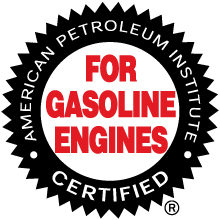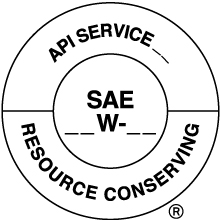MOTOR OIL MATTERS: SYNTHETIC OR TRADITIONAL? CHECK YOUR OWNERS MANUAL
Reid Porter
Posted June 6, 2017
A new report from AAA compares different types of engine oils, but there’s one important thing to remember: check your owner’s manual before switching motor oils.
Consumers must consult their owner's manual to see which SAE viscosity grade and performance level is recommended for their vehicle's engine. Manufacturers often recommend oils licensed by API as these oils have been rigorously tested to prove they meet API's engine oil standards and ensure that consumers get the high-quality oil demanded by today’s engines. Not all vehicles require the same level of performance or viscosity grade.
This year marks API’s 70th year as the motor oil standard setter. Oils may have more than one performance level and API’s standards testing process ensures that the products meet the levels of performance claimed. Modern motor oil is a highly specialized product carefully developed by engineers and chemists for specific uses. Engines depend on motor oil to permit easy starting, lubricate engine parts and prevent wear, reduce friction, protect against rust and corrosion, keep engine parts clean, minimize combustion chamber deposits, cool engine parts, and protect emissions systems.
For many years API has licensed motor oils that meet API performance standards while also sampling and testing them in the marketplace. API’s Engine Oil program is a cooperative program between oil and additive industries and vehicle and engine manufactures. Motor oils are tested and sampled by API in the marketplace to ensure they meet requirements.
API’s Motor Oil Matters campaign ensures that drivers are using high-quality oil, specific to their engine needs. For more than 85 years, API has led the development of petroleum and petrochemical equipment and operating standards. These represent the industry’s collective wisdom on everything from drill bits to environmental protection and embrace proven, sound engineering and operating practices and safe, interchangeable equipment and materials.
Consumers can find oils meeting API requirements by looking for these marks:


Motor Oil Matters has one main goal: to make sure that consumers receive high-quality oil. This happens by maintaining a secure chain of custody for motor oil from oil marketer to distributor to installer to vehicle. API also focuses on the process by which motor oil travels from oil marketers to the consumer. Ensuring proper chain of custody can assure consumers receive the high-quality oil they expect.
Be sure to look for the MOM mark in order to identify oil change locations committed to providing motor oil meeting these standards. Find a MOM-certified oil change location near you by browsing our directory on motoroilmatters.org.
You can also take action, the MOM program will hold oil distributors and oil change locations accountable if they're not up to MOM standards. Industry members and consumers are encouraged to notify API about questionable products. To report a problem, submit our online form on motoroilmatters.org.
Consumers can use this online checklist to learn more about proper oil changes, trusted oil change locations and motor oil performance standards.
About The Author
Reid Porter is a spokesman for the American Petroleum Institute. Before joining API, he worked as Account Supervisor at Edelman. Porter double majored in English Literature and the Spanish language at Middlebury College in Vermont. He enjoys traveling, cheering for the Green Bay Packers, soccer, rereading Hemingway novels and spending time with family.


